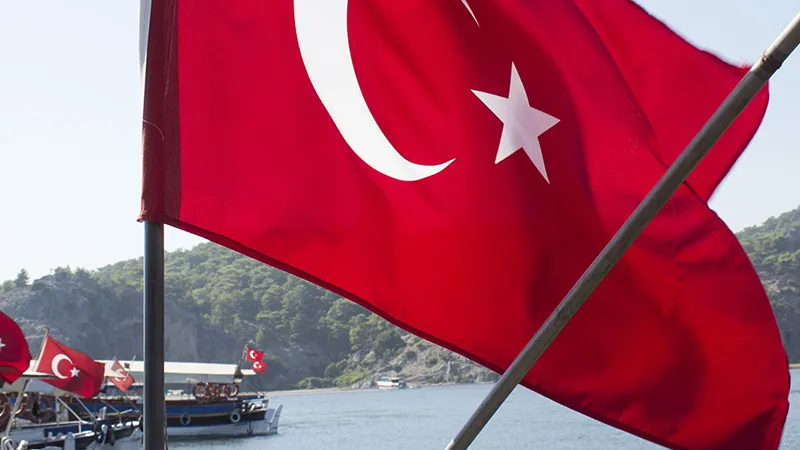-
CENTRES
Progammes & Centres
Location

Reports from Turkey indicate that for a fifth time since the birth of the Republic there was an attempted military coup on July 15. If Turkish President Recep Tayyip Erdogan’s reaction is any indication — his unscheduled presence in Istanbul, a very typical response about the attempt being masterminded by the “parallel structure”, his term for the Gulen and his call to the people to take to the streets to oppose the army — there seems to be a modicum of truth in the reports. It is now apparent that pro coup soldiers had attempted to take control of the Bosphorus Bridge, the Parliament and the Ataturk airport. Earlier pro coup statements had suggested that a “peace council” ran the country, though it was unclear as to who was in control and how much support they enjoyed. While sporadic gunfire was reported from major cities, the surrender of some of the rebel army units was broadcasted live in the morning of July 16 and flights from Istanbul’s Ataturk airport (recently in news for Islamic State led suicide attacks) had resumed soon thereafter. It, however, remains unclear as to who is in control in certain areas. Prime Minister Binali Yildirim, a recent Erdogan appointee, has declared the situation to be under control and the morning headlines of July 16 in Hurriyet notes that the two opposition parties, the Republican People’s Party (CHP) and the Nationalist Movement Party (MHP) have announced their stance against the coup attempt.
 A fresco inside the Blue Mosque in Istanbul
A fresco inside the Blue Mosque in IstanbulSince 1960, Turkish political life has experienced direct or indirect intervention of the military in civilian political life every ten years. The country’s democratic image was set back three times by military coups in 1960, 1971 and 1980. Then in 1997 a ‘post-modern’ military intervention led to the fall of an ‘Islamist’ government opposed by the military. Like this one, where a statement from the group said that democratic and secular rule of law had been eroded by the present government, all the interventions were made with the purported intention of stopping the government from using religion as an instrument of party politics and to ‘adjust the balance of democracy’. The present situation in Turkey fits the bill perfectly. In recent times, attacks on the press and individuals for critical comments about the President and the increasingly authoritarian AKP control within Turkey have been well documented. Within Turkey, 1128 academics who had signed a petition calling for a return to peace negotiations with Kurdish forces are currently either under investigation, have been dismissed, suspended or jailed. The media is state controlled and critical columns in newspapers like Today’s Zaman have led to subsequent takeover of control of the newspaper by the Turkish state for alleged financial misappropriations. A few days after the EU Turkey refugee agreement, President Erdogan is said to have declared, “Democracy, freedom and the rule of law.. for us these words have absolutely no value any longer.”
The involvement of the Turkish army in domestic politics has been encouraged by various factors. Turkish military Janissary tradition encourages the army to intervene in politics and this was strengthened by the fact that the national hero was a General. The Turkish army carries the image of being the initiator of reforms and it is said to believe that its mission is to defend the state not only from external threats but also from what they consider to be internal threats and regards itself as the guardian of democracy. The constitutional and the administrative structure of the state together with a lack of belief in the capacity of the civilian society to solve its own problems have encouraged the military to intervene in politics. The role of the Turkish army as a part of Turkish politics is problematic. The Republic was established by Generals (Ataturk and his colleagues) and it was ruled by another general, Inonu till 1950. Also most of the Turkish Presidents have been of military origin. This privileged position of the Turkish military was challenged by the European Union pre-accession process whose compliance requires diminishing the control of the military over civilian life. The challenge of ‘security sector reform’ and ‘democratic oversight’ brought into question the extensive influence that the military preserved in Turkish politics. On July 13, 2013, the Turkish Parliament amended Article 35 of the Internal Service Code of the Turkish Armed forces, which had given them responsibility for ‘protecting and safeguarding the Turkish homeland and the Turkish Republic as stipulated by the Constitution’ — an article that had provided historical justification for military coups which had overthrown governments between 1960 and 1997. The amended code now redefines the military’s responsibility as ‘defending the Turkish nation against external threats and dangers and maintaining and strengthening military powers to ensure deterrence’. This has been largely viewed in the context of preventing the military from acting in the post Gezi Park scenario and was followed by a series of cases against army generals who have been dogged by claims of discrepancies. The defendants of another alleged coup plot Sledgehammer have taken their cases to the UN Human Rights Council insisting that the evidence against them was doctored and in 2015 most of those accused in the Ergenekon case were acquitted. The amendment also came at a time when Turkey had spoken out against the Egyptian military’s overthrow of President Morsi. It is not surprising that statements from the present insurgent group have called for a new constitution.